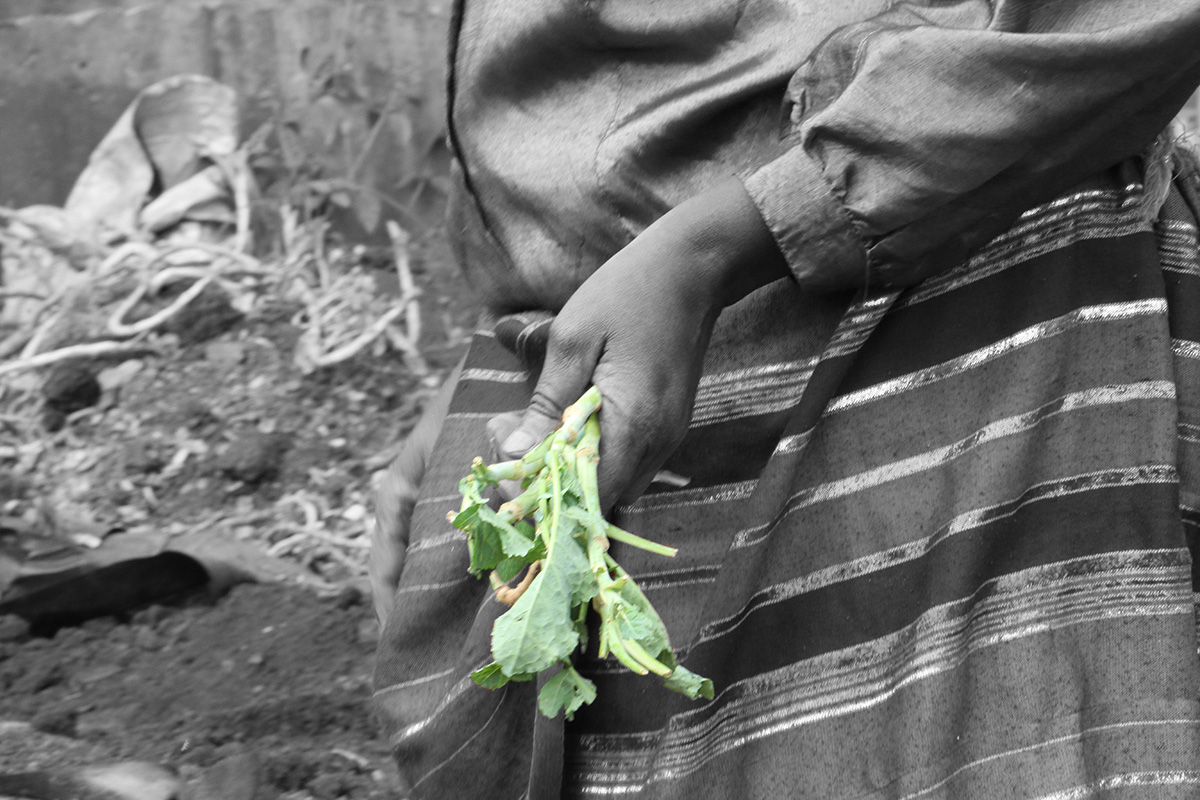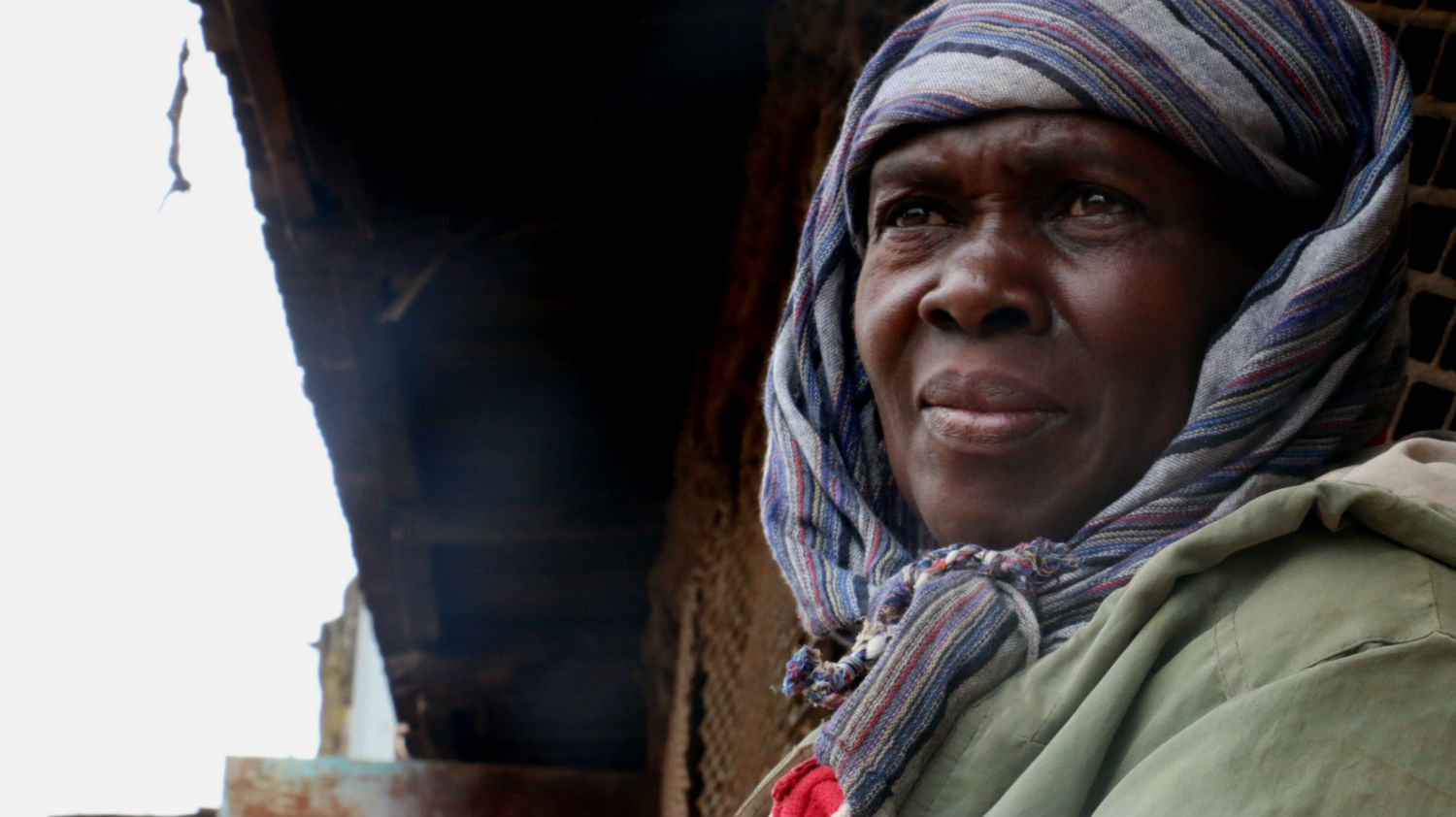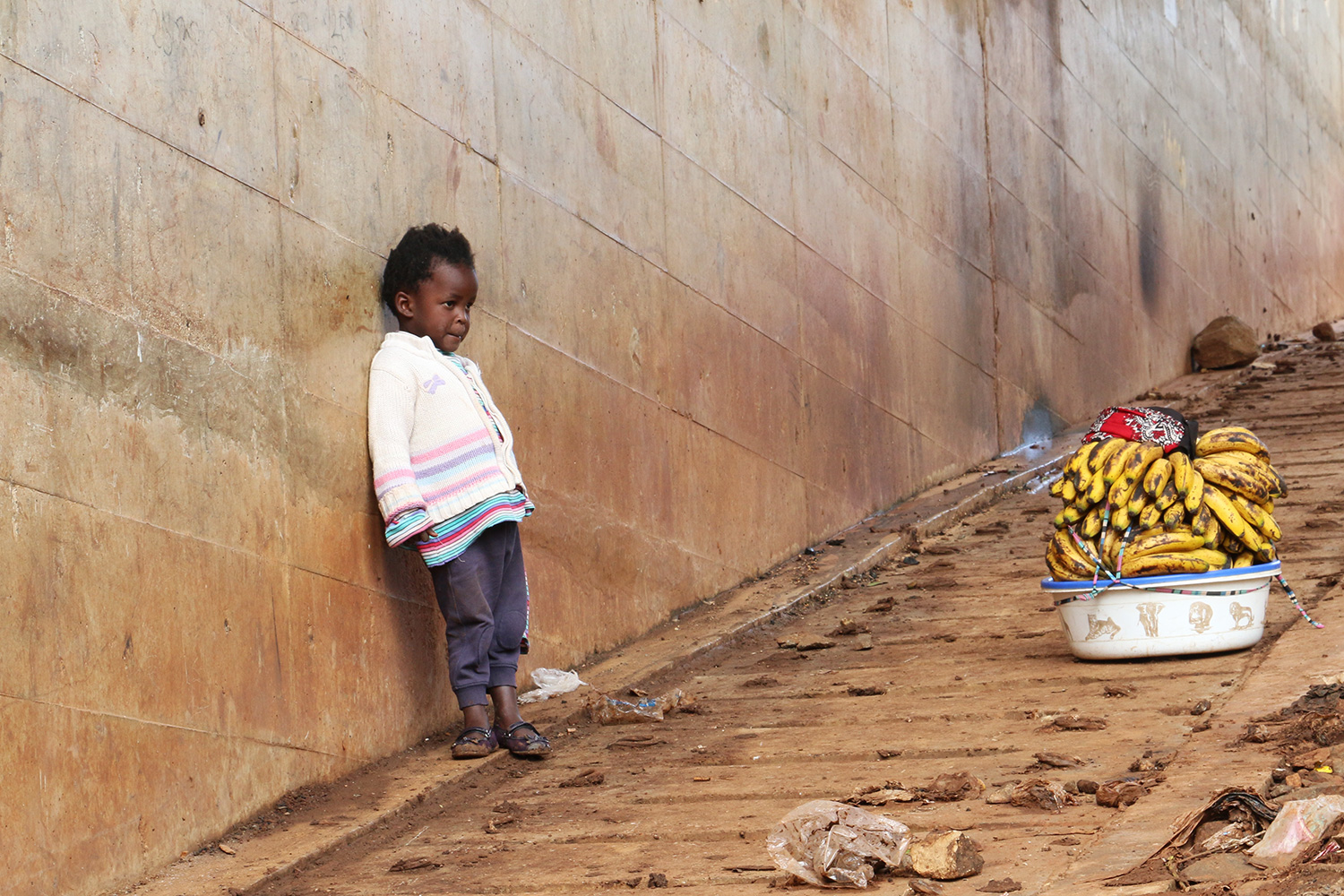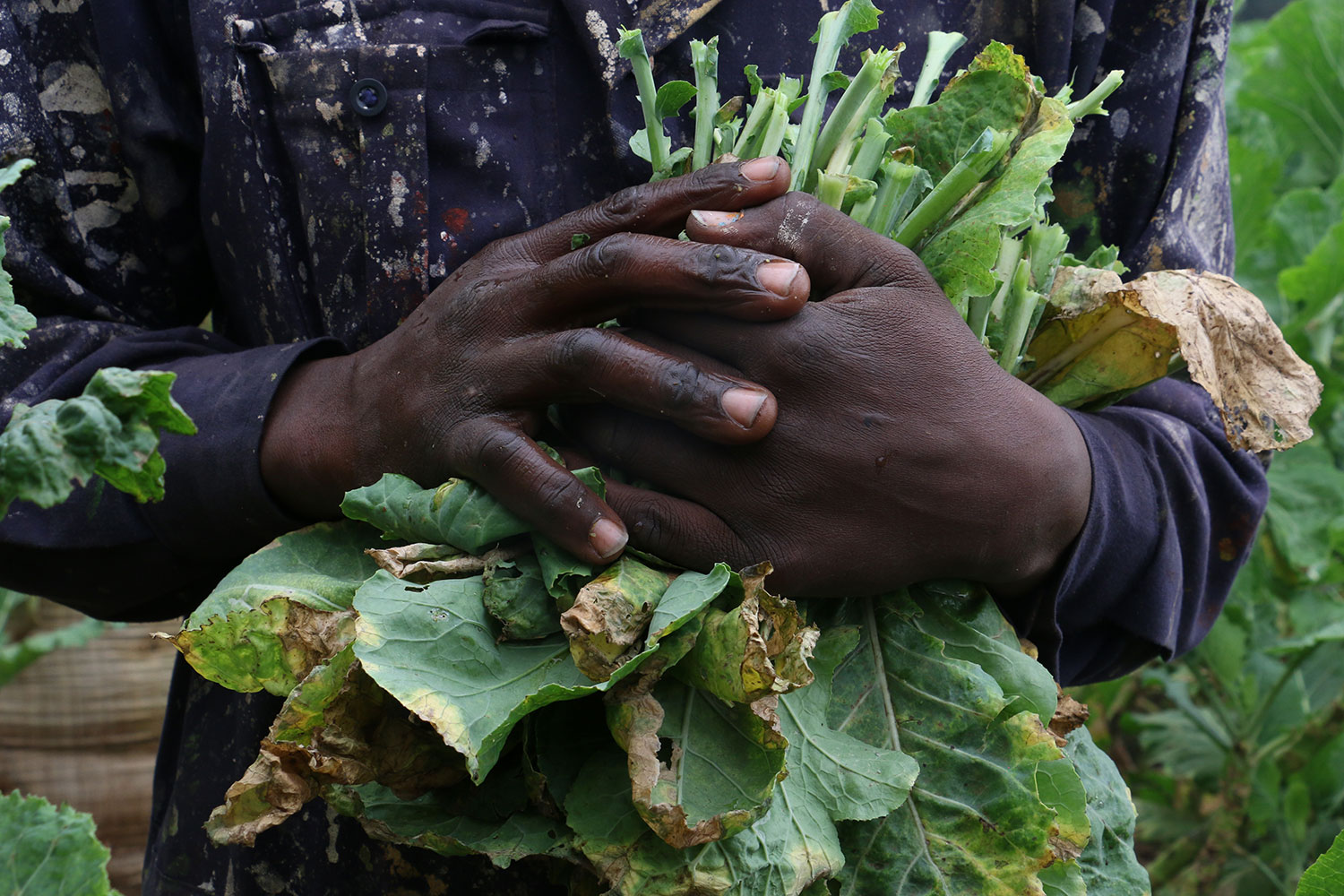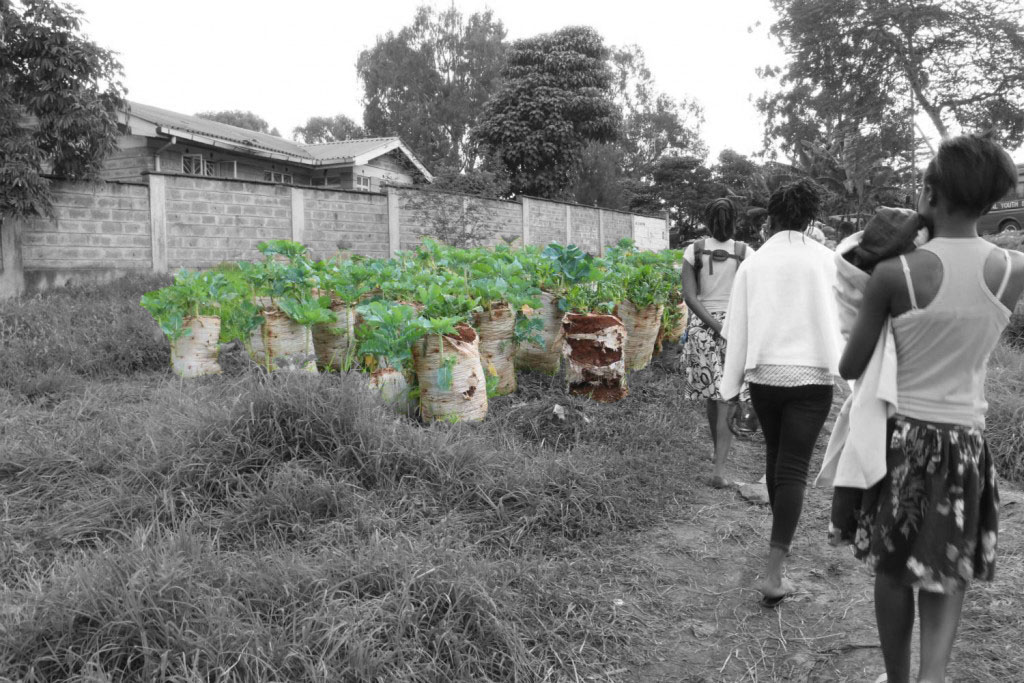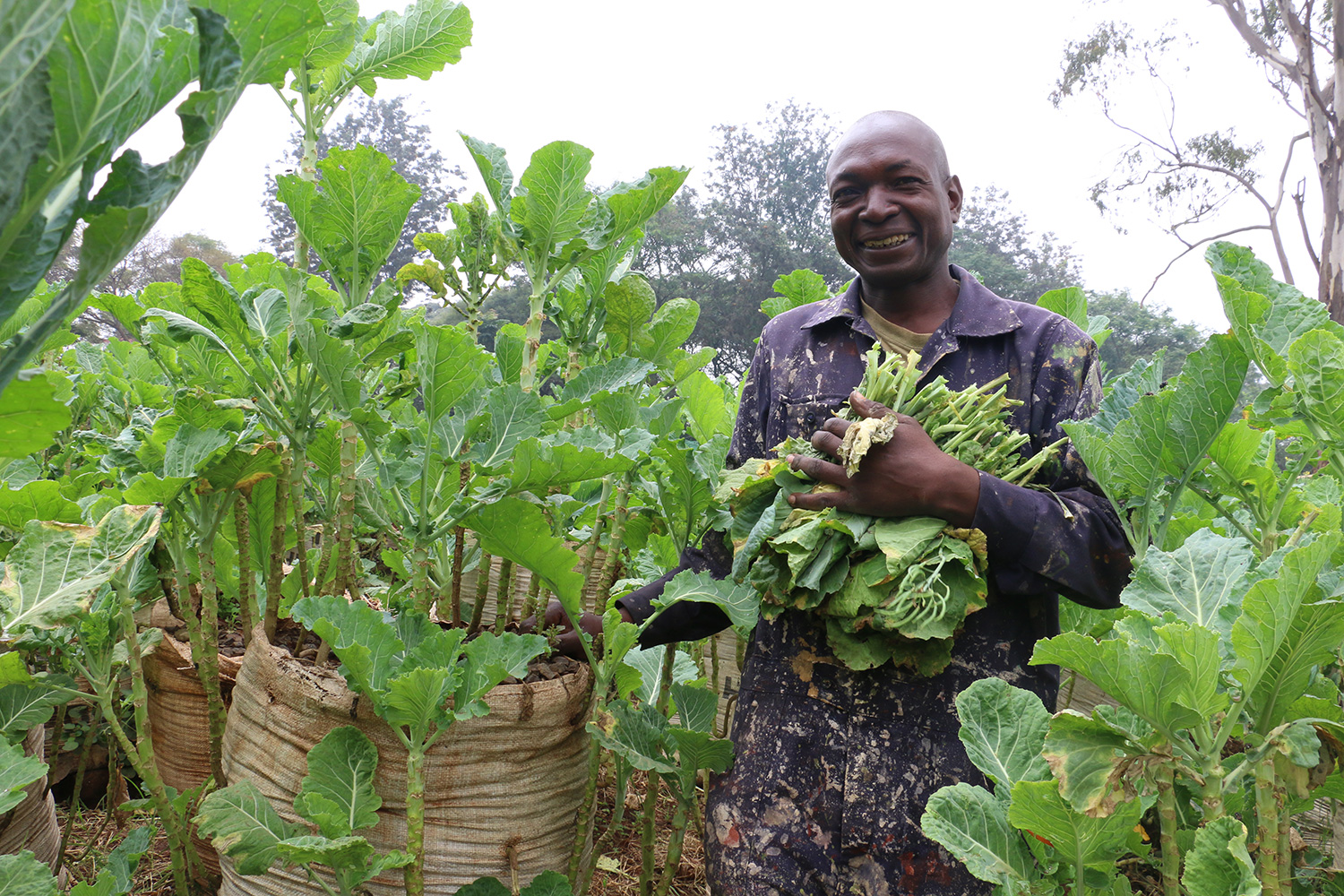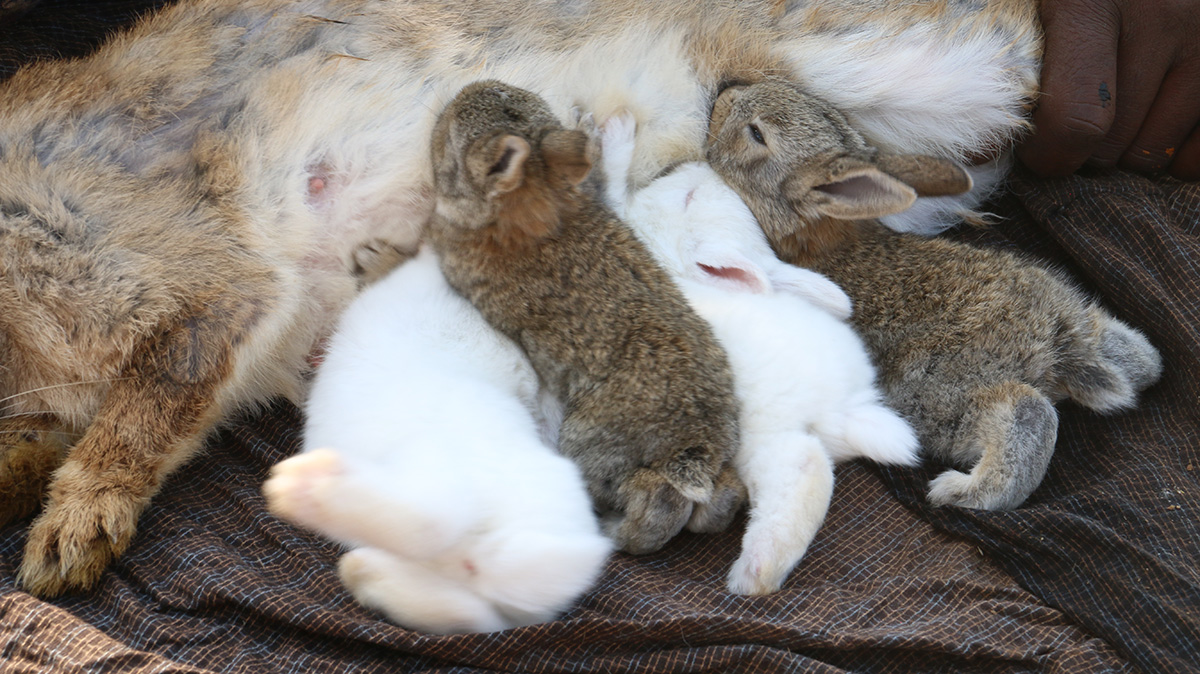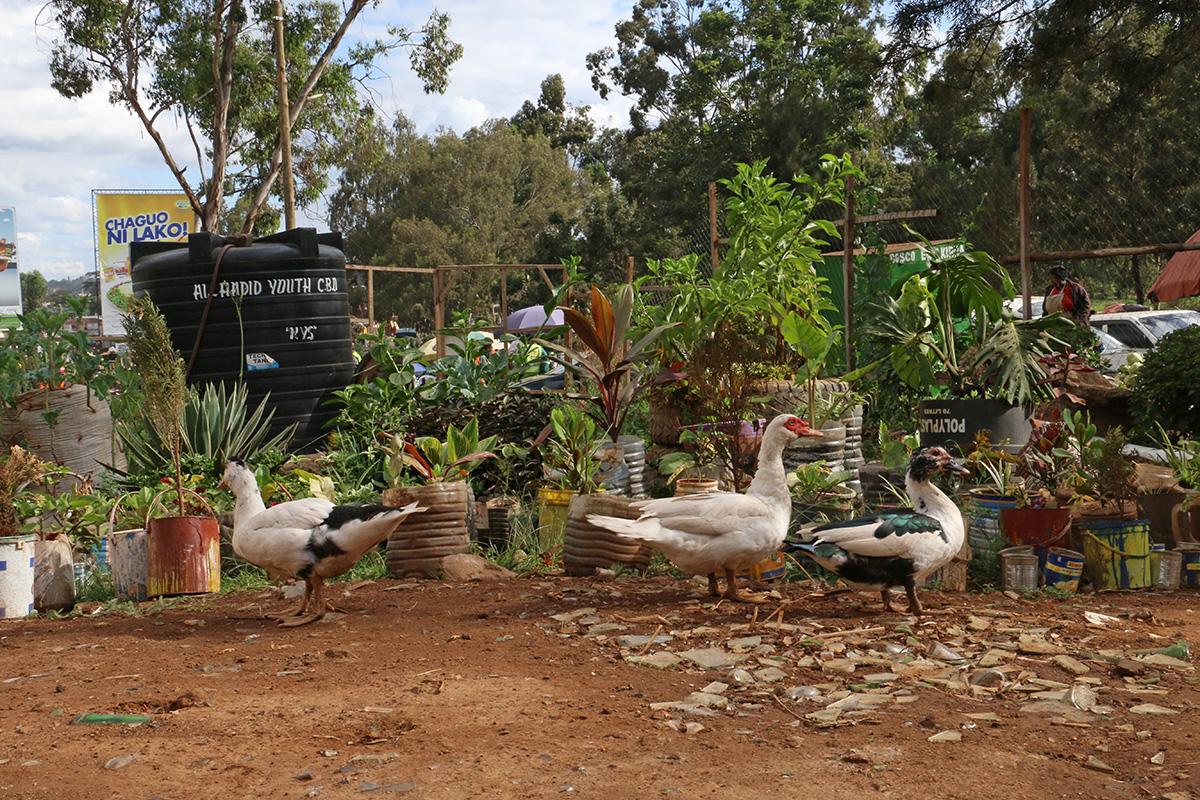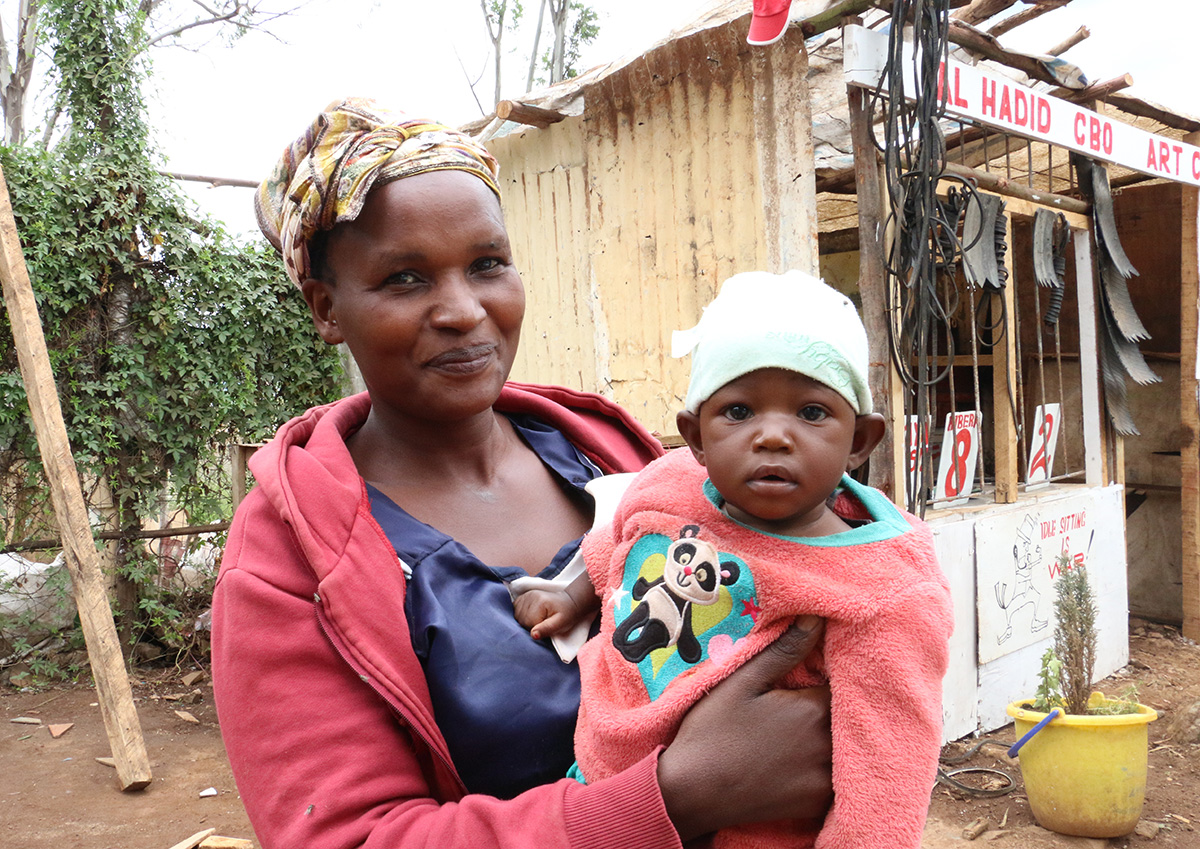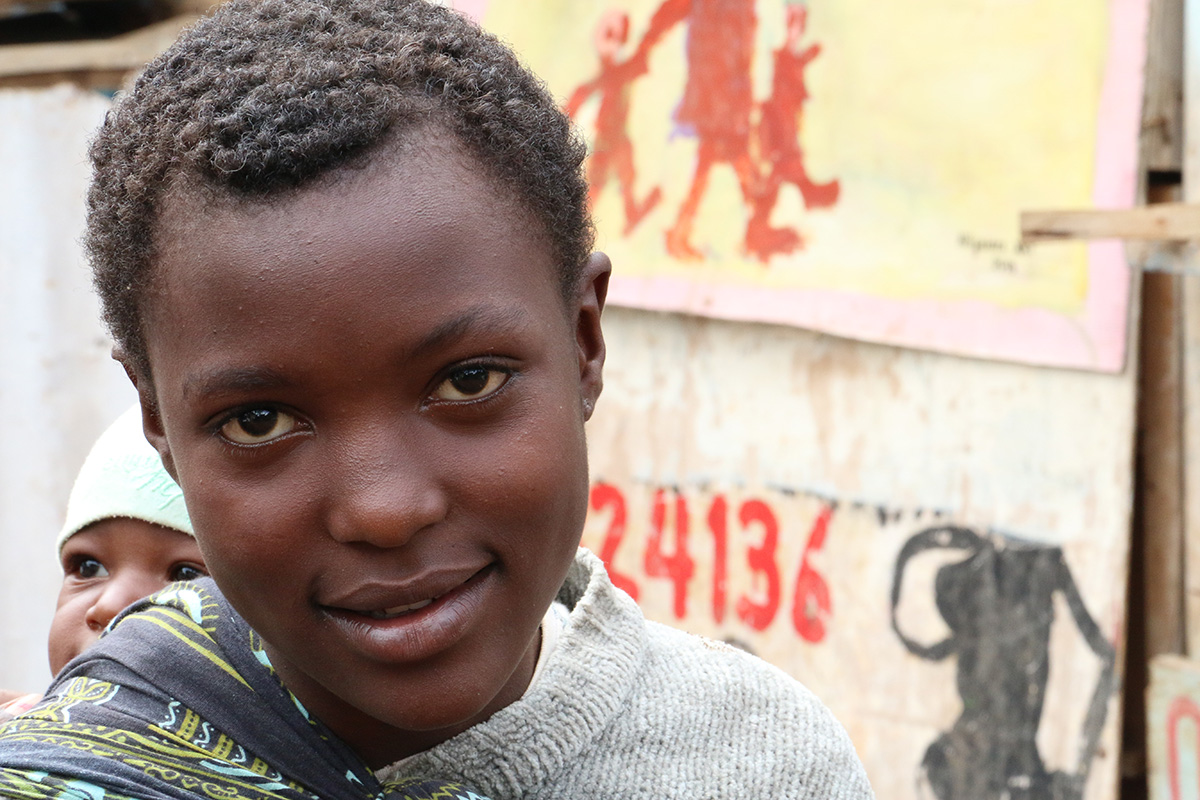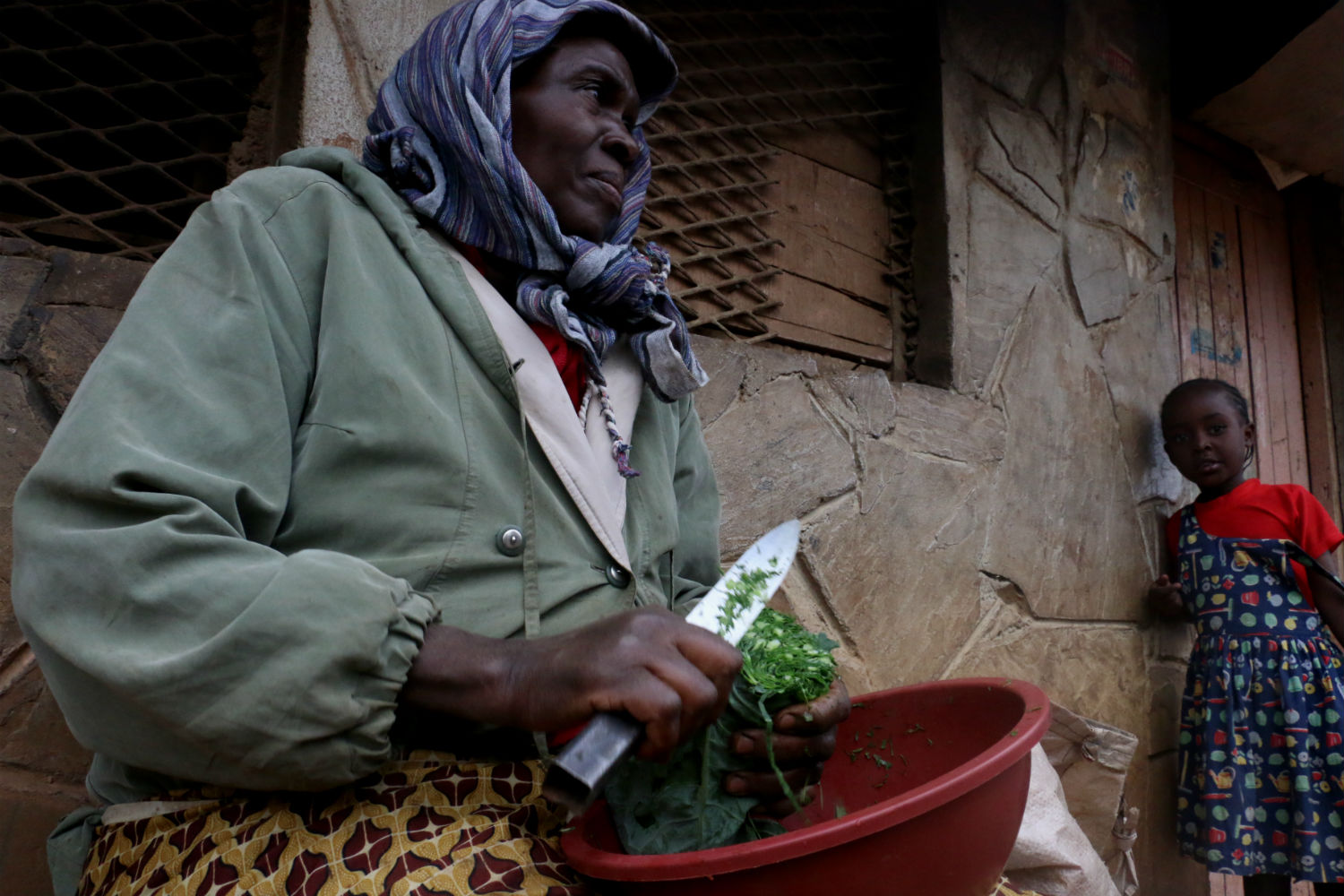
Why women?
Women are the breadbasket of the world. Their role in food production is as old as the division between hunters and gathers in prehistoric times.
Women still make up the majority of world food producers today.
Women produce nearly 80 per cent of the food in sub-Saharan Africa, according to the Food and Agriculture Organization of the United Nations (FAO). Women’s roles in the developing world tend to revolve around food production and preparation.
“In many regions of the world, women spend up to five hours per day collecting fuel wood and water, and up to four hours preparing food,” says the FAO in their Women Feed the World report.
Not only are women instrumental in the world’s food production, the majority of women across the world are responsible for bringing food to the family table at meal times, says Oxfam Canada program officer Roxanne Murrell, and veteran of the women’s movement. Murrell has dedicated her career to rural agriculture in Latin America, with specific emphasis on gender empowerment through agriculture.
In many cultures, including much of sub-Saharan Africa, cultural tradition and patriarchal social structures place the onus on women to feed their family. They often do this by participating in subsistence agriculture.
Urban agriculture could be seen as a transfer of women’s traditional role in substance agriculture into their new urban landscape. Women make up nearly two-thirds of urban farmers in sub-Saharan Africa, according to a 2012 International Development Research Centre report.
Urban agriculture provides women with an opportunity in an urban setting to continue to provide subsistence food sources, close to their homes but with greater technologies and resources that can help them flow into small market activities.
Women can make more money by participating in value-added activities. From the produce, or meat that they rear they could start a small restaurant to increase their urban agriculture profitability.
Women are less likely than men to participate in the more profitable large-scale cash crop farming in rural areas, says Murrell. This is due to gender inequality in a woman’s right to access, and secure land in rural regions.

Woman working a field in rural Kenya. [Photo Credit: Flickr Creative Commons]
In many cases, women cannot inherit land in their rural villages. “Women [in Kenya] are allowed to buy land, they can’t inherit it,” Diana Lee-Smith, a pioneer in the field of urban agriculture, and a long-time transplant in Nairobi.
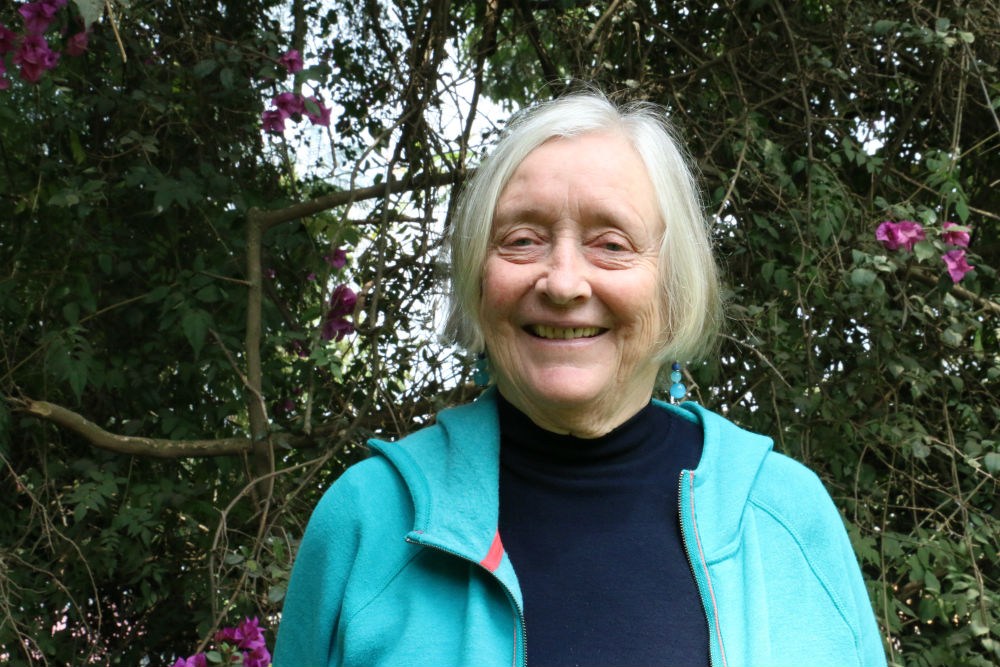
Diana Lee-Smith posing at the Mazingira Institute in Nairobi, Kenya. [Photo © Evelyn Harford]
Inheritance rights only guarantees land to men, not women. Since women cannot secure viable land themselves without a man, they are often bound to them because of economic necessity. If a woman wants to strike out on her own, many are forced to move into urban centres to find work as a housekeeper – as we saw through Maggie’s and Judy’s story.
Gender inequality permeates land rights laws in Kenya and indeed across the developing world. For women in Kibera, saving enough money to buy land is a near impossibility. Most of the money they make goes back into their families.
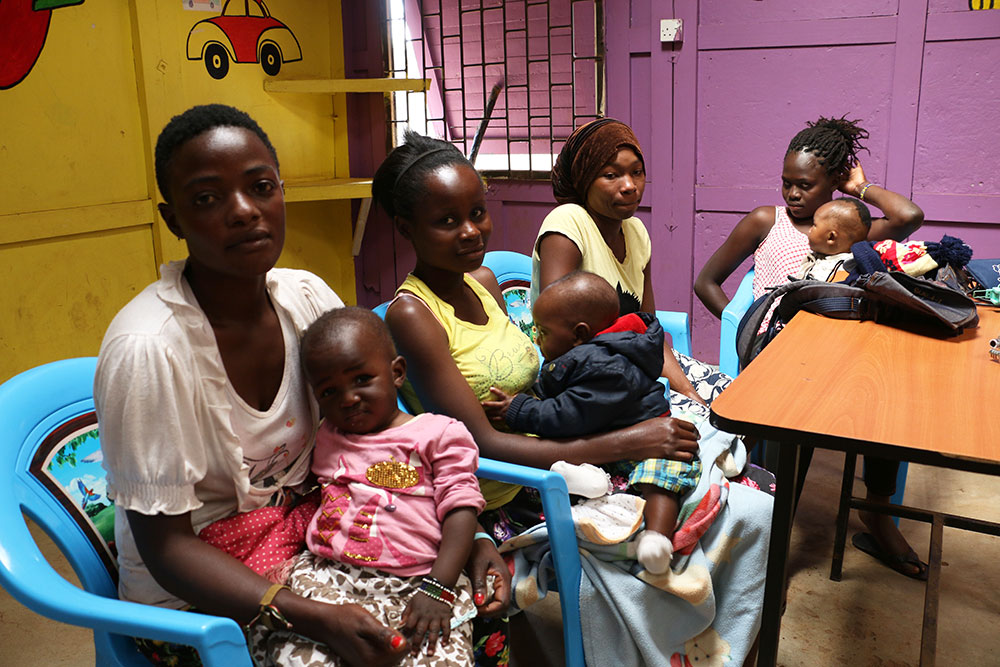
Judy and two teen mothers meeting at Savo Foundation. [Photo © Evelyn Harford]
“Women both adapt and knuckle under in the situation, or they try to make changes to the environment, or they move away,” said Lee-Smith, who led the first ever comprehensive study of urban agriculture in the late-80s.
The experience of women moving away from their rural homes into urban centres is a common story, as illustrated by Judy and Maggie.
“Look at the numbers of urban women who are there on their own,” says Lee-Smith. “Why are they there on their own? It’s because the men own all the rural land and they can’t, so they’ve moved away and they may indeed be widows, or second wives.”
Women who leave their rural homes, escaping the chains of patriarchy, often find themselves in urban centers, like Kibera, still performing traditional roles to provide food for their family.
“It is women who act on the value that their main goal in life is to support and care for their family,” says Lee-Smith. “So, maybe there is a fundamental gender difference.”
My research backs up Lee-Smith’s claim. As I have shown above, for the most part, it is mostly the women of Kibera engaged in the business of urban agriculture.
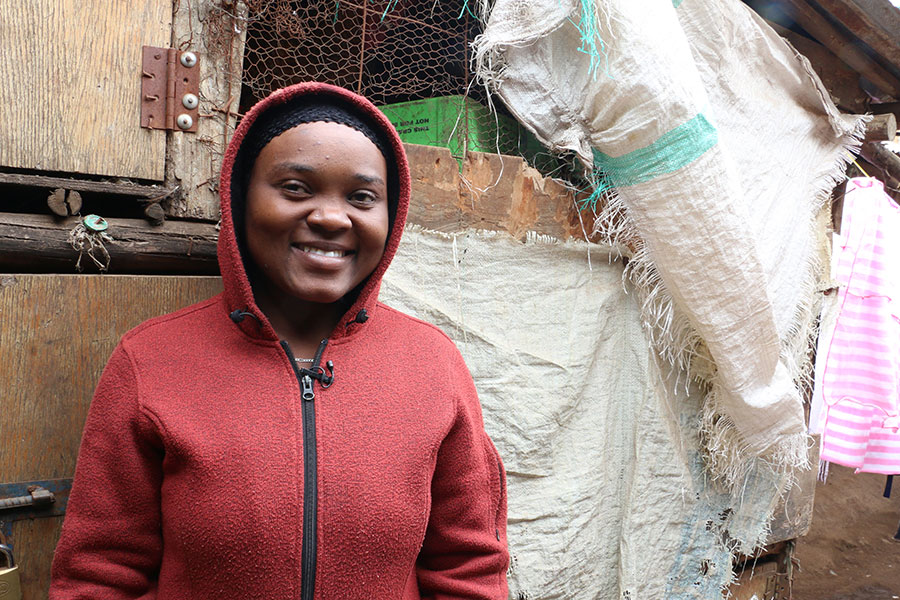
Zainab poses in front of her chicken coop. [Photo © Evelyn Harford]
“It’s been a very big debate in the women’s movement and elsewhere. In a way, it’s just a cultural assumption that women are more caring,” says Lee-Smith. “But, nevertheless in most cultures, they simply are.”
Whether it’s ‘nature or nurture’, instinct or tradition or, simply the need to survive, in the case of urban agriculture in Nairobi, women play a major role. But that doesn’t mean they have the support they require to make these initiatives productive and sustainable.
Women and poverty
Gender inequality within Kenya has serious, real-world impacts on women’s daily lives. There are ripple effects that spread out from a lack of rights that include the absence of income and food security. Women’s barriers to land rights and increased risk of food insecurity and poverty prevent or reduce most input from women when it comes to public policy, including having a say about urban agricultural reform.
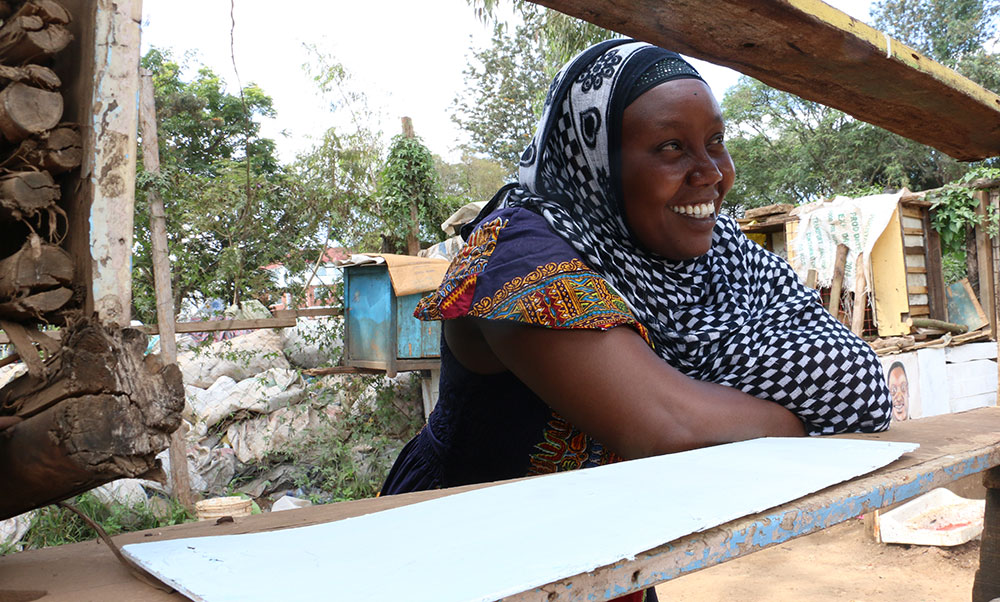
Naimo visits Ali at the Ali Hadid farm. [Photo © Evelyn Harford]
“Kibera has a lifestyle; most of our men are drunkard,” says Naimo Abdullai, the founder of Savo Foundation, a non-profit that supports girls in Kibera through water and sanitation projects.
When you look around the streets, you can’t escape the unimaginable level of poverty that is rampant and normalized.
Domestic gender-based violence is common: rapes and beatings. Some of Maggie’s orphans have been victims of serious gender based violence.
An 18-year-old girl living with Maggie experienced a gang rape by four men on her way to find work. Another, younger girl in Maggie’s care was sold into the sex-trade by her uncle.
“People [here] live less than a dollar a day,” says Naimo. “And they suffer in silence. Most of these people who suffer in silence are women.”
When it comes to tending urban plots and a wide range of household-related tasks, women are at the helm working hard, while many men stay idle. Women are responsible for child rearing, cooking and cleaning. Many get pregnant while still in their teens leaving them with little education and the added burden of caring for their children.
“The girl children start to suffer from a very young age,” says Naimo. “So as she is growing up she decides to start early prostitution and early birth. And that makes her mental and her status, and physical appearance more vulnerable.”
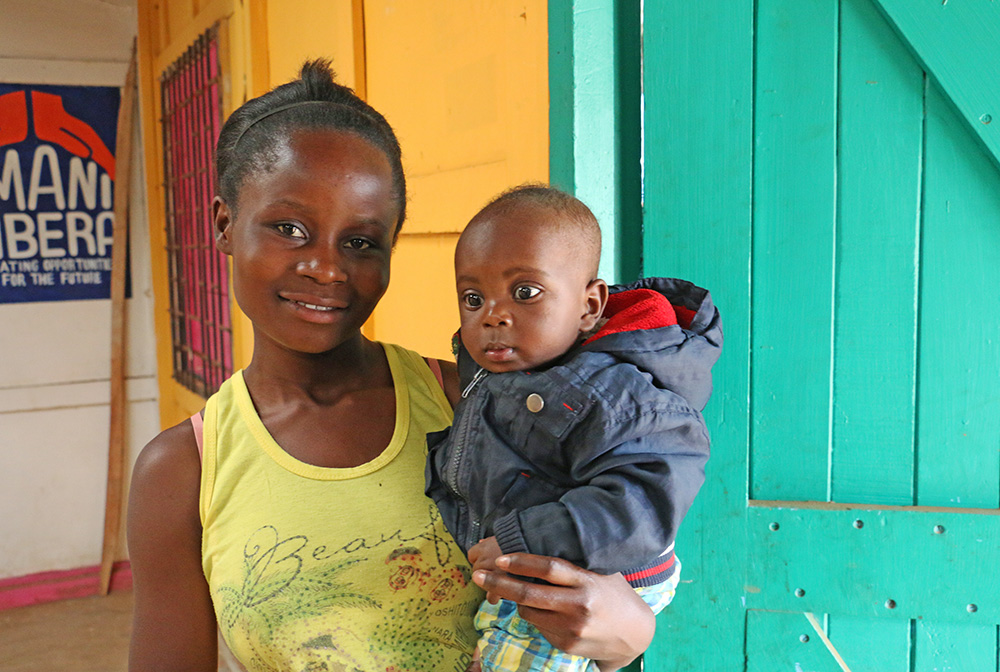
Finah Atieno and her baby visit with Judy and Naimo at Savo Foundation. [Photo © Evelyn Harford]
Many men in Kibera say they know that women struggle more than them. Although it’s unfair, it is simply accepted as the way life goes. Urban farmer, Ali Abdul Majid, works with many women at a gender-balanced urban farm called Al-Hadid.
Ali, 37, is now a part of the urban farming movement too. The Kibera native started his urban farm at his self-help group, Al Hadid, two years ago. Now, they have 147 sack gardens and dozens of rabbits, chickens and ducks.
Photo Gallery: Ali and his animals at Al Hadid. [Photo © Evelyn Harford]
Ali’s group promotes gender mainstreaming through their urban agriculture projects. Both men and women work together to rear the animals and tend to the kale sacks.
He says, working with women has increased dialogue between men and women working at the farm leading to a more common understanding.
“Women also have their brains. They’re also human beings they also have ideas,” says Ali. “When we are together we exchange ideas and we give them support.”
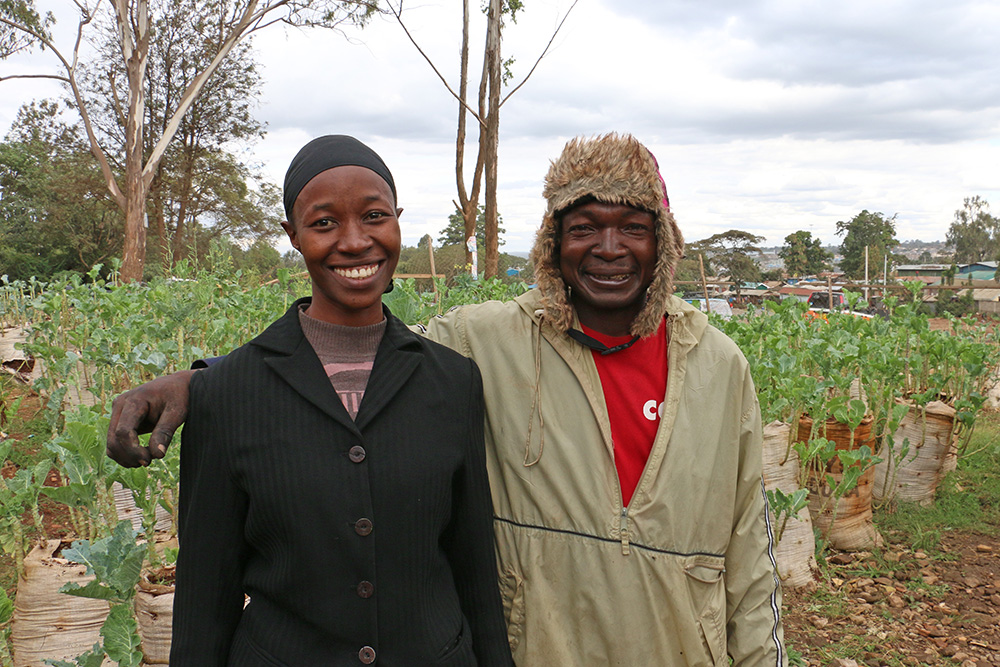
Ali and Beatrice, an Al Hadid member, at the farm. [Photo © Evelyn Harford]
The urban farm has helped the women who work there.
“They see if they come and spend their time here they’ll have vegetables to eat, they’ll have vegetables to sell and they’ll have food to feed their children,” he says. “It saves them.”
Ali has seen that women go hungry more often than men in Kibera.
“Women, they can’t do hard labour,” says Ali. “So they stay home and they stay hungry. They wait for the men to come home and give them something small to eat.”
Ali says that women can’t get higher paying construction and labour jobs, which is what he means by “hard labour”. Women are left to do more low-paying tasks like cooking and cleaning laundry, as well as, unpaid tasks like caring for their children. Women rely on men for money when they are working, but Ali says that this comes at a cost.
“Here in Nairobi men can’t give you money unless he takes you to be a girlfriend and then he gives you money. So women they are suffering,” he says.
Lydia Simon works at Al Hadid. Most days she brings her children. [Photo © Evelyn Harford]
Ali’s views are not uncommon. He’s brutally honest about women’s condition in Kibera; a condition that is generally accepted and rarely challenged. But, even women who work with Ali at Al Hadid’s or with Edmonton at The Junction’s fish farm, are still responsible for traditional roles like cooking and cleaning despite the mandate to promote equality and ensure the projects are gender balanced, as required by Kenya’s 2013 Constitution.
“All those things have to change and it has to be part of the education system,” says Diana Lee-Smith. “It is beginning to be institutionalized. It has to be in the education system and it has to be a group by group, institution by institution and family by family. It is hard.”
Lee-Smith, a crusader in the women’s movement, isn’t surprised that clear gender inequality still exists despite the institutionalization of gender balancing within Kenya.
In the Kenyan constitution there are stipulations for laws “to promote gender equality…to coordinate and facilitate gender mainstreaming in national development.” Lee-Smith acknowledged that the Kenyan government’s decision to include a constitutional right to ensure women’s “equitable access to land” is a huge step forward for women.
“When we got a new constitution in Kenya that was a huge change because we have women’s property rights enshrined in the constitution and we have supplementary laws which entrench it,” she says.
The constitution states that women should have equal right to land, effectively making the tradition for only men to inherit land unconstitutional. While there have been some legislative victories, gender equality is still not represented in government itself, says Lee-Smith.
Women only make up 19 per cent of elected officials in the Kenyan Parliament. They make up 34 per cent of elected officials in the Nairobi County Assembly. Women’s lack of participation in public policy is seen as one crucial problem when addressing Kenya’s gender gap but it’s not the only barrier.
“You can change laws but you have to change people’s attitudes about the laws,” she says. “The reproduction of gender inequality is learned at a very young age. I think that change is starting in families,” says Lee-Smith.
Lee-Smith and the Davinder Lamba, the executive director of the Mazingira Institute, the Nairobi-based urban agriculture and land rights research and education hub, try to consciously shake up gender norms in their office. Lee-Smith believes they could be an example for other organizations.
“If someone is going to bring you tea; it’s a woman. If someone is going to clean the toilets; it’s a woman. So you talk about that and Davinder is an expert on this,” she says. “He’ll say, ‘ok, all the women back to their desks, men you are going to clean up the kitchen.’ They don’t have a choice because he’s the executive director, otherwise, it would not be talked about and it would be done the way they implicitly assume.”
Faith cooks at the Junction
International and local development organizations operating within Kenya have prioritized investing in women to achieve broader development objectives such as food security, and education. Women are seen as the crucial societal thread to bring struggling communities out of systemic poverty.
The onus to invest in women is not a new, revolutionary idea. Diana Pearce coined the term, “feminization of poverty” back in 1978. Since the 1970’s it has been generally accepted that women face a burden of poverty disproportionate to that of men. Since then, international development organizations and governments have made gender equity central to many activities and polices with mixed results. That’s part of what’s playing out in Kenya and Kibera.
“We need to invest in the girl child,” repeated Naimo Abdullai, co-founder of Savo Foundation, an organization serving women and girls in Kibera. “If you change one man, you change one life. If you change one woman you change 50 lives.”
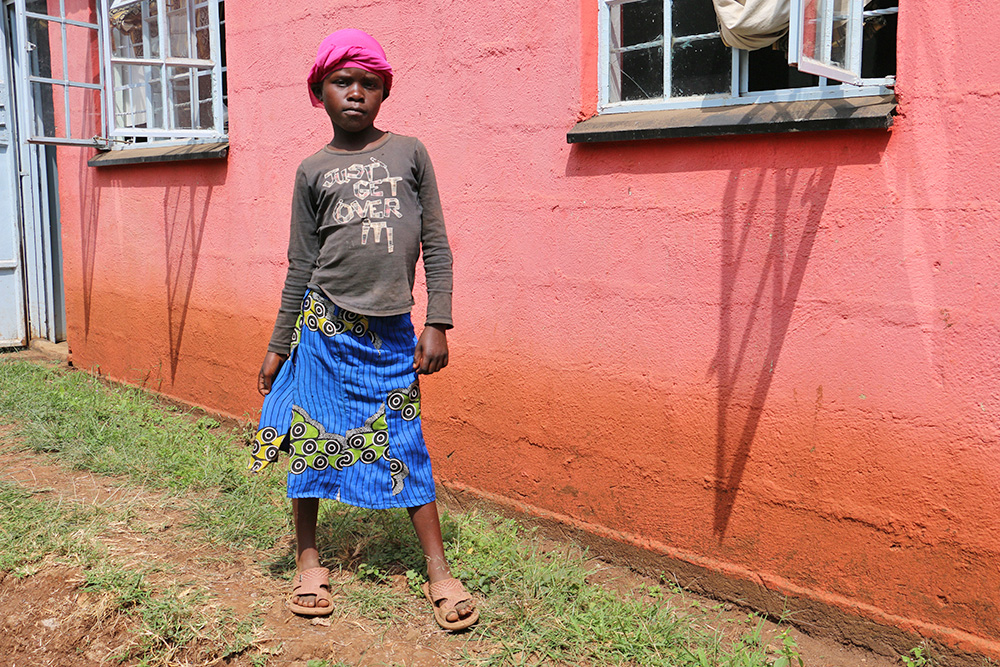
Sandra Ayuma, 7, stands strong at LAPCA as her grandmother helps Maggie plant sack gardens. [Photo © Evelyn Harford]
Women in Kibera are not the exception across the developing world. Many women like Maggie, Judy and Naimo have all experienced discrimination and hardships because of their gender.
Naimo, like Maggie was a victim of domestic abuse. She left her husband with her four children after over a decade of torment. Now she tries to give back to women and girls in the community through water and sanitation programs and urban agriculture education.
“Me I am a woman born in a society called Kushites. There is a word in my culture were women are there to be seen and not to be heard. We get married to very lazy men and we end up raising our children by ourselves,” she says. “I really want other women to get together and make change.”
Naimo has struggled with the pains of gender inequality in her own life. After being married at the age of 13 years she birthed four children by her abusive husband.
“That was not my dream,” she says.
As I interviewed her she shies away when I asked her why she is so passionate to help women. She herself was made a child bride, her dreams were ripped out from under her. Now she is giving back to women who are going through the same trauma.
Investments for women need to be carefully considered in the formation of urban agriculture policy. Naimo sees value in training female urban farmers, just as Maggie does.
Naimo now provides training for income generating activities, like sack gardening, to help women gain confidence and to earn money to invest in themselves and their families.
“You see if a woman is confident, she is able to sustain regardless of this man giving her nothing,” says Naimo. She teaches the young teen mothers about urban agriculture so that they can make money and provide for their young families.
Naimo, like Maggie are hubs for knowledge and encouragement in their community. They are what Diana Lee-Smith calls, “change agents”.
“We’re a country in a process of change,” says Lee-Smith, “and change agents emerge in those situations, so good for them.”
Lee-Smith says that change agents, like Naimo and Maggie, are crucial to help change women’s lives, and men’s attitudes toward them.
Click on “Food insecurity” to learn how women disproportionately experience food insecurity, and how urban agriculture could lessen hunger in Kibera.
